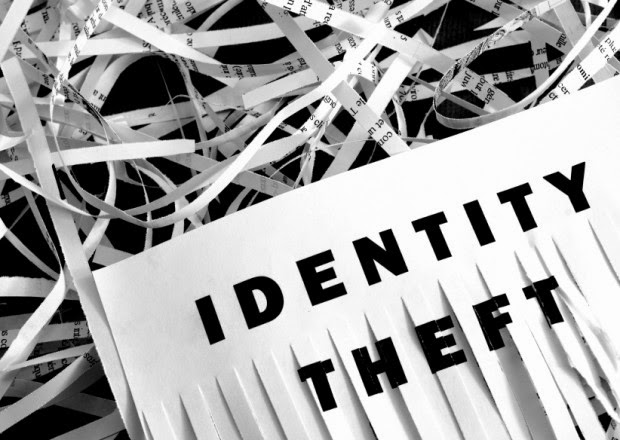5 Steps to Take Immediately If You’ve
Been a Victim of Identity Theft
Identity theft has
topped the list of consumer complaints filed with the FTC for 13 consecutive years and
there’s no evidence that this year it won’t make the list for the 14th. Just
how many victims of identity theft are there each year? While we don’t yet have
the figures for 2013, a Javeline report puts the numbers from 2012
at 12.6 million. Factor in the more than 70 million Americans impacted by the
recent Target and Niemen Marcus data breaches, and it’s clear why identity
theft is a major concern for many Americans.
Identity theft takes
many forms. Some of the most common include:
·
Credit card fraud
·
False applications for
new credit
·
Fraudulent withdrawals
from a bank account
·
Fraudulent use of
telephone calling cards
·
Fraudulent use of an
IP address in order to engage in illegal acts online
·
Fraudulent use of
medical care
·
Social security fraud
(for tax and employment fraud)
If you know or suspect
that you are the victim of identity theft, there are steps you should take
immediately to stop the theft and minimize the damage.
1. Put a Fraud Alert
on Your Credit Reports
A fraud alert puts a red
flag on your credit report and notifies lenders and creditors that they should
take extra steps to verify your identity before extending credit. To place a
90-day fraud alert on all three of your credit reports, you only need to
contact one of the three credit reporting agencies (Experian, Equifax, or TransUnion).
When you place the initial alert, they will automatically notify the other two
agencies for you.
Another option—and a
more effective identity theft prevention measure—is to place a security freeze
on each of your credit reports. A freeze prevents creditors (except those with
whom you already do business) from accessing your credit report(s) at all. New
applications will automatically be declined. With a security freeze in place,
you will need to take extra steps if you wish to apply for new credit. Each
agency has a procedure for temporarily “thawing” your file in order to allow a
legitimate application to be processed and unlike a fraud alert, you’ll need to
contact each agency individually to place a freeze on each of your reports. See
more information about security freezes here: Experian, Equifax and TransUnion.
When you place a fraud
alert on your credit reports, you’re entitled to a free copy of your credit
report from each of the three agencies. Be sure to obtain them. If you find
fraudulent items on your credit report(s), the simplest way to begin the
dispute process is to click the item while viewing your credit report online.
Some items must be disputed in writing and with supporting documentation. Hard
inquiries cannot be disputed, but may give you a clue as to where a thief has
applied for credit in your name.
Initial fraud alerts
are free and remain in place for 90 days. In some cases, security freezes and
extended fraud alerts incur a small fee, but these services are free to victims
of identity theft.
2. Contact Any
Institution Directly Affected
For example, if you
know your credit card was stolen, report the theft to the credit card issuer.
If your checkbook was stolen, contact your bank.
For this step it’s
really helpful if you’ve prepared a list of institutions and phone numbers in
advance. You don’t have to write account numbers down on the list – that would
be just one more way for a thief to gain access to your personal information.
But do keep a list of what’s in your wallet, along with the contact information
for each item.
3. Contact the Federal
Trade Commission (FTC)
File an Identity Theft
Affidavit and create an Identity Theft Report. You
can file your report online, by phone (toll-free): 1-877-ID THEFT
(877-438-4338); TDD (toll-free): 1-866-653-4261, or by mail — 600 Pennsylvania
Ave., Washington DC 20580.
The FTC will provide
you with information about what to do next, depending on what type of fraud was
(or may have been) committed.
4. File a Police
Report
To complete the
Identity Theft Report, you’ll need to contact your local law enforcement office
and report the theft. Be sure to get a copy of the police report and/or the
report number. Both your police report and the FTC Identity Theft Affidavit
combine to create your Identity Theft Report. Your Identity Theft Report will
help you when working with the credit reporting agencies or any other companies
the identity thief may have used to open accounts in your name.
5. Protect Your
Social Security Number
If your social
security number was or may have been compromised, contact the Social
Security Administration (800-269-0271) and the Internal
Revenue Service (800-829-0433).
It’s important to talk
to the SSA if you have reason to believe your social security number has been
compromised, even if you don’t yet see any evidence of financial fraud. A thief
could be planning to swipe your tax refund, or to obtain employment in your
name.
In addition to these
five steps, if you have reason to believe the identity thief may have submitted
a fraudulent change-of-address to the post office or has used the U.S. mail to
commit the fraud against you, contact the Postal
Inspection Service, which is the law enforcement and
security branch of the post office. Fill out the online form.
This list is not
exhaustive. These are only some of the first few steps. Indeed, clearing the
wreckage of identity theft can be a laborious and complex process. For more
information about how to prevent or recover from identity theft, the U.S. Department of
Justice and the Federal Trade Commission offer
a wealth of information and will walk you through the steps.

